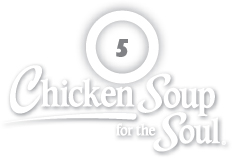
So if there was ever a moment for all of us to reflect and reaffirm our most basic beliefs that everybody counts and everybody has dignity, now is the time.
~President Barack Obama, June 16th, 2016
My iPhone screamed the news as I stood in front of the open closet door in my hotel room. “49 DEAD IN MASSACRE AT GAY BAR!” I tried to take a step back and sit on the bed, but the unexpected grief kept me frozen. I’d just finished the Lake Placid Half Marathon, and spent the last several hours slogging through the rain and cold, daydreaming about collapsing into bed. But now, even with 13.1 miles behind me, I couldn’t sit down. I just stood there, reading through the horror.
The words bounced around in my head, scrambling my thoughts into an ugly fog of anger, fear, and sadness. I transformed back into that little girl in elementary school, when I was always under attack.
“If you don’t wear a dress to school, I’m going to fail you,” said my fifth-grade teacher.
“Let’s play ‘Kill the Queer’!” yelled the kids at recess.
“What are you, a dyke or something?” sneered a boy in the lunch line.
Even as a young child, I knew I was different. Teachers and peers alike made sure to remind me every day. I didn’t even understand the words “tomboy,” “homo,” “queer,” “faggot,” or “dyke.” I had no idea what they meant, but somehow I knew they were me. More importantly, I knew that all those words were the worst thing anyone could ever be. Shame, fear, loneliness, and desperation all went hand in hand with whatever “gay” was. As a child, it meant being hated — that was all I knew for sure. Back then, my best hope in life was to be invisible, to shrink back into the depths of the closet in my childhood bedroom, blanketed by the shadows and the darkness, alone but safe.
I’ll just kill myself if it’s true . . . I remember thinking matter-of-factly at seven years old.
Seven years old.
In the 1970s and 1980s, when one of the queers “got themselves killed,” there was laughter. There was snickering. There were jokes. Even worse, there was silence. That was the majority opinion. If I turned out to be gay, then all of those sneers from the playground at recess were right. I’d be a queer, a faggot, a homo — a sin so great that my death would be a joke. Better to just kill myself to spare my family the humiliation, spare them the unbearable shame.
“That queer had it coming. One less pervert to worry about!” my young ears overheard from the TV in the other room.
I was terrified to be gay. Gay was expendable. Gay was perverted. Gay was a dead, bloodied body being mocked and laughed at by the masses.
My heart started pounding, and sweat beaded on my forehead as I relived the dark past of gay history in America.
Then my son’s high-pitched toddler voice cut through the silence and snapped my mind out of its tailspin.
“MOMMY, I NEED GO PEE!”
Finally, I stepped back and sat on the bed.
“Okay, buddy. Good job using your words. I’ll help you.”
I stood up and followed him into the bathroom, my knees cracking in protest. As my son peed all over my sneakers, my mind wandered. I began to assume that a quiet indifference would settle in the air, and the country would move on without skipping a beat. That’s what almost always happened in the past when these tragedies occurred.
After I sopped up my son’s pee from the bathroom floor, I nestled into the couch next to my wife, with him lying horizontally across our laps. I braced myself for the hate and turned on the TV.
I was blinded by the rainbows. Politicians, news outlets, TV channels, companies, entire cities — all mourning, shrouded in colors. My parents called in tears. My wife’s father called, outraged. In my grief and horror, I was not alone, I was not shrinking into the shadows, not hated. I was loved and giving love. President Obama released a statement condemning the violence and embracing the gay community. This time, the hater was the outcast, and the country was behind us. My wife and I looked at each other, teary-eyed and amazed.
A sad, deranged man with a gun stole forty-nine lives and affected countless others. It was unimaginable and tragic. The darkness came calling, urging me to retreat in fear, to hide myself in the shadows. But the love and support from family, friends, and country pulled me back from the darkness that day. I felt the weight of my profound grief spread across millions of shoulders. Even though the country I know hasn’t always been kind, after the Pulse nightclub massacre on June 12, 2016, America carried me.
~Julia Pfeiffer
